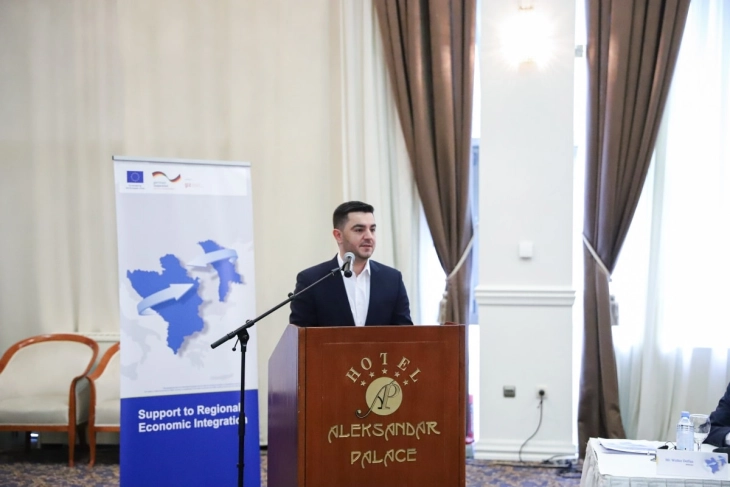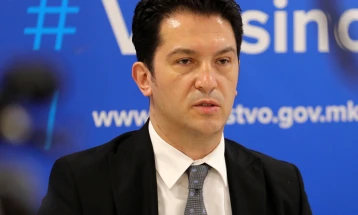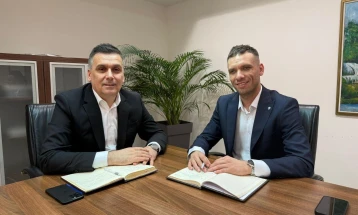GIZ project ‘EU4Business: Support to Regional Economic Integration’ promoted
- Post By Ivan Kolekevski
- 12:06, 14 June, 2022

Skopje, 14 June 2022 (MIA) – Project of the German Agency for International Cooperation (GIZ) titled “EU4Business: Support to Regional Economic Integration”, which aims to strengthen economic integration among Central European Free Trade Agreement (CEFTA) member-states by supporting the implementation of an action plan over a common regional market, was launched in Skopje on Tuesday.
Economy Minister Kreshnik Bekteshi told the launch event that the action plan focuses on facilitating free movement of commodities, services, capital and people while ensuring economic prosperity of all citizens in the CEFTA countries, as well as their easier integration within the EU accession process.
“The common regional market and the action plan aim to support the elimination of unjustified geo-blocking measures by identifying these barriers and providing recommendations for their removal via the European legislation,” said Minister Bekteshi.
According to him, significant progress has been achieved over the past year through intensification of activities related to e-trade.
“The CEFTA consolidated market represents an opportunity for expansion of businesses that offer e-services. Although individually small markets, CEFTA members constitute an integrated market of about 20 million consumers with an estimated revenue of about EUR 1 billion, which would enable local businesses to expand their operations by investing in new technologies and processes, staff, marketing etc. On the other hand, there are many barriers that prevent the CEFTA market to be considered an integrated market. This includes lack of standards, diverse regulations, high delivery costs, insufficient digital knowledge as prerequisite for e-trade etc,” said Bekteshi.
He expects the project activities to lead to elimination of four geo-blocking stages in e-trade: access, registration, delivery and payment.
Steffen Hudolin, Head of Cooperation at the EU Delegation to North Macedonia, said the project served to support regional economic integration through the creation of a common regional market, but also to improve trade relations among countries.
“I believe there is enormous room for further development. We are here to use this potential and support this economic cooperation among regional states. The success of this project will largely depend from the feeling of ownership among parties concerned, with the aim of identifying and overcoming the existing obstacles of regional economic operators,” noted Hudolin.
Otto Graf, Deputy Chief of Mission at the German Embassy in Skopje, said Germany has been committed to the Berlin Process since 2014, with strengthened economic cooperation and progress in the region being one of the fundamental pillars in the process.
“The reason for this is simple. Regional countries are small and don’t have large production capacities, facing difficulties in this regard. This project is attempting to link up these companies in order to push the growth of regional enterprises not only from the aspect of their size but also their capacities. This will improve their competitiveness in the Western Balkans and beyond,” added Graf.
Emir, Djikic Director of the CEFTA Secretariat, said the project is an important endeavor for all CEFTA member-states, especially with regards to the realization of the action plan for a common regional market that the seven countries adopted a few years ago, while GIZ country director David Oberhuber said the project’s realization represents a new chapter in facilitating and proving trade exchange in the region.
The project is supported by the European Commission and the German Federal Ministry for Economic Cooperation and Development (BMZ).







